 Go to A-Z Databases: Books & eBooks to search for more eBooks. Must be on campus or login with your COM account for off campus access.
Go to A-Z Databases: Books & eBooks to search for more eBooks. Must be on campus or login with your COM account for off campus access.
Want more on finding books or eBooks? Try our How to Use Books & eBooks guides.
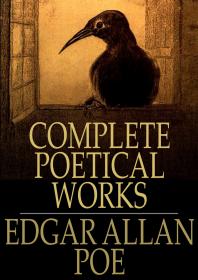 Edgar Allan Poe's Complete Poetical Works
by
Edgar Allan Poe
Today, Edgar Allan Poe is best remembered as a master of suspense and an early innovator in the genre of detective fiction, but Poe's first literary ambition was to be known as a poet. This stellar collection brings together some of his most accomplished works, including "The Raven," "Annabel Lee," and "The Bells."
Edgar Allan Poe's Complete Poetical Works
by
Edgar Allan Poe
Today, Edgar Allan Poe is best remembered as a master of suspense and an early innovator in the genre of detective fiction, but Poe's first literary ambition was to be known as a poet. This stellar collection brings together some of his most accomplished works, including "The Raven," "Annabel Lee," and "The Bells."
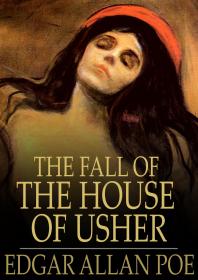 The Fall of the House of Usher
by
Edgar Allan Poe
Dive into this classic from the singular mind of Edgar Allan Poe, who is widely regarded as the master of short horror fiction. "The Fall of the House of Usher" recounts the terrible events that befall the last remaining members of the once-illustrious Usher clan before it is -- quite literally -- rent asunder. With amazing economy, Poe plunges the reader into a state of deliciously agonizing suspense. It's a must-read for fans of the golden era of horror writing.
The Fall of the House of Usher
by
Edgar Allan Poe
Dive into this classic from the singular mind of Edgar Allan Poe, who is widely regarded as the master of short horror fiction. "The Fall of the House of Usher" recounts the terrible events that befall the last remaining members of the once-illustrious Usher clan before it is -- quite literally -- rent asunder. With amazing economy, Poe plunges the reader into a state of deliciously agonizing suspense. It's a must-read for fans of the golden era of horror writing.
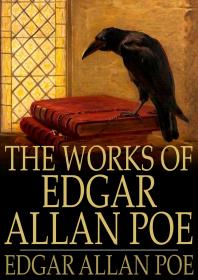 The Works of Edgar Allan Poe
by
Edgar Allan Poe
It is virtually impossible to overstate Edgar Allan Poe's importance in the field of American literature. He is credited not only with inventing or significantly advancing the short story, detective fiction, and science fiction, but also with being one of the first Americans to pursue a career in writing as a vocation. This comprehensive volume is a career-spanning collection of Poe's stories and poems.
The Works of Edgar Allan Poe
by
Edgar Allan Poe
It is virtually impossible to overstate Edgar Allan Poe's importance in the field of American literature. He is credited not only with inventing or significantly advancing the short story, detective fiction, and science fiction, but also with being one of the first Americans to pursue a career in writing as a vocation. This comprehensive volume is a career-spanning collection of Poe's stories and poems.
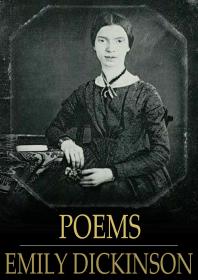 Poems : Series I - III, Complete
by
Emily Dickinson
Emily Dickinson (1830 - 1886) was an eccentric, reclusive poet, though born to a family of good standing within their Massachusetts community. She had fewer than a dozen poems published in her lifetime, though posthumously her sister found a cache of nearly eighteen hundred, all of which have now been published. Emily's style was broke with the common forms of poetry at the time, and foreshadowed what was to come. Her work was harshly criticized when first published, but she is now considered one of the American greats.
Poems : Series I - III, Complete
by
Emily Dickinson
Emily Dickinson (1830 - 1886) was an eccentric, reclusive poet, though born to a family of good standing within their Massachusetts community. She had fewer than a dozen poems published in her lifetime, though posthumously her sister found a cache of nearly eighteen hundred, all of which have now been published. Emily's style was broke with the common forms of poetry at the time, and foreshadowed what was to come. Her work was harshly criticized when first published, but she is now considered one of the American greats.
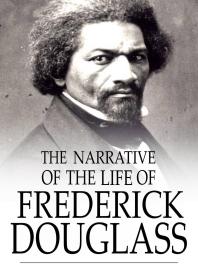 The Narrative of the Life of Frederick Douglass
by
Frederick Douglass
Frederick Douglass was an ex-slave and a great orator in early 19th-century USA. His autobiography details his experiences as a slave and is considered the most famous such work, though many similar were written by his contemporaries. This work also influenced and fueled the abolitionist movement, in which Douglass was an important figure.
The Narrative of the Life of Frederick Douglass
by
Frederick Douglass
Frederick Douglass was an ex-slave and a great orator in early 19th-century USA. His autobiography details his experiences as a slave and is considered the most famous such work, though many similar were written by his contemporaries. This work also influenced and fueled the abolitionist movement, in which Douglass was an important figure.
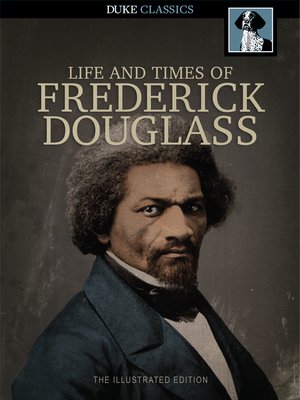 The Narrative of the Life of Frederick Douglass
by
Frederick Douglass
Frederick Douglass was an ex-slave and a great orator in early 19th-century USA. His autobiography details his experiences as a slave and is considered the most famous such work, though many similar were written by his contemporaries. This work also influenced and fueled the abolitionist movement, in which Douglass was an important figure.
The Narrative of the Life of Frederick Douglass
by
Frederick Douglass
Frederick Douglass was an ex-slave and a great orator in early 19th-century USA. His autobiography details his experiences as a slave and is considered the most famous such work, though many similar were written by his contemporaries. This work also influenced and fueled the abolitionist movement, in which Douglass was an important figure.
 Walden
by
Henry David Thoreau
One of the most famous non-fiction American books, Walden by Henry David Thoreau is the history of Thoreau's visit to Ralph Waldo Emerson's woodland retreat near Walden Pond. Thoreau, stirred by the philosophy of the transcendentalists, used the sojourn as an experiment in self reliance and minimalism… "so as to "live deliberately, to front only the essential facts of life, and see if I could not learn what it had to teach, and not, when I came to die, discover that I had not lived." Walden stresses the significance of self-reliance, solitude, meditation, and nature in rising above the the life of quiet desperation lived by most people. that, he argues, is the lot of most people. Part autobiography, part manifesto Walden is a moving treatise on the importance distancing oneself from the consumerism of modern Western society and embracing nature in its place.
Walden
by
Henry David Thoreau
One of the most famous non-fiction American books, Walden by Henry David Thoreau is the history of Thoreau's visit to Ralph Waldo Emerson's woodland retreat near Walden Pond. Thoreau, stirred by the philosophy of the transcendentalists, used the sojourn as an experiment in self reliance and minimalism… "so as to "live deliberately, to front only the essential facts of life, and see if I could not learn what it had to teach, and not, when I came to die, discover that I had not lived." Walden stresses the significance of self-reliance, solitude, meditation, and nature in rising above the the life of quiet desperation lived by most people. that, he argues, is the lot of most people. Part autobiography, part manifesto Walden is a moving treatise on the importance distancing oneself from the consumerism of modern Western society and embracing nature in its place.
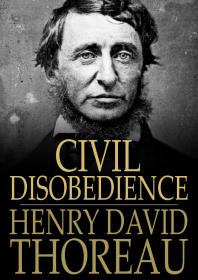 Civil Disobedience
by
Henry Thoreau
Thoreau wrote Civil Disobedience in 1849. It argues the superiority of the individual conscience over acquiescence to government. Thoreau was inspired to write in response to slavery and the Mexican-American war. He believed that people could not be made agents of injustice if they were governed by their own consciences.
Civil Disobedience
by
Henry Thoreau
Thoreau wrote Civil Disobedience in 1849. It argues the superiority of the individual conscience over acquiescence to government. Thoreau was inspired to write in response to slavery and the Mexican-American war. He believed that people could not be made agents of injustice if they were governed by their own consciences.
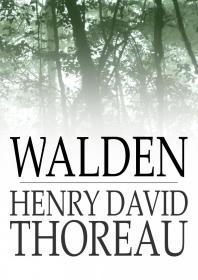 Walden
by
Henry Thoreau
One of the most famous non-fiction American books, Walden by Henry David Thoreau is the history of Thoreau's visit to Ralph Waldo Emerson's woodland retreat near Walden Pond. Thoreau, stirred by the philosophy of the transcendentalists, used the sojourn as an experiment in self reliance and minimalism… "so as to "live deliberately, to front only the essential facts of life, and see if I could not learn what it had to teach, and not, when I came to die, discover that I had not lived." Walden stresses the significance of self-reliance, solitude, meditation, and nature in rising above the the life of quiet desperation lived by most people. that, he argues, is the lot of most people. Part autobiography, part manifesto Walden is a moving treatise on the importance distancing oneself from the consumerism of modern Western society and embracing nature in its place.
Walden
by
Henry Thoreau
One of the most famous non-fiction American books, Walden by Henry David Thoreau is the history of Thoreau's visit to Ralph Waldo Emerson's woodland retreat near Walden Pond. Thoreau, stirred by the philosophy of the transcendentalists, used the sojourn as an experiment in self reliance and minimalism… "so as to "live deliberately, to front only the essential facts of life, and see if I could not learn what it had to teach, and not, when I came to die, discover that I had not lived." Walden stresses the significance of self-reliance, solitude, meditation, and nature in rising above the the life of quiet desperation lived by most people. that, he argues, is the lot of most people. Part autobiography, part manifesto Walden is a moving treatise on the importance distancing oneself from the consumerism of modern Western society and embracing nature in its place.
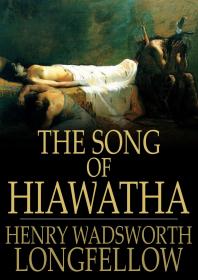 The Song of Hiawatha
by
Henry Wadsworth Longfellow
"At the door on summer evenings Sat the little Hiawatha; Heard the whispering of the pine-trees, Sounds of music, words of wonder . . ." The infectious rhythm of "The Song of Hiawatha" has captured the ears of millions. Once drawn in, they've stayed to hear about the young brave with the magic moccasins, who talks with animals and uses his supernatural gifts to bring peace and enlightenment to his people. America's most popular nineteenth-century poet, Henry Wadsworth Longfellow devoted himself to providing his country with a national mythology, poetic tradition, and epic forms. Known and loved by generations of schoolchildren for its evocative storytelling, his 1855 classic is regarded as a masterpiece of American literature, combining romance and idealism in an idyllic natural setting.
The Song of Hiawatha
by
Henry Wadsworth Longfellow
"At the door on summer evenings Sat the little Hiawatha; Heard the whispering of the pine-trees, Sounds of music, words of wonder . . ." The infectious rhythm of "The Song of Hiawatha" has captured the ears of millions. Once drawn in, they've stayed to hear about the young brave with the magic moccasins, who talks with animals and uses his supernatural gifts to bring peace and enlightenment to his people. America's most popular nineteenth-century poet, Henry Wadsworth Longfellow devoted himself to providing his country with a national mythology, poetic tradition, and epic forms. Known and loved by generations of schoolchildren for its evocative storytelling, his 1855 classic is regarded as a masterpiece of American literature, combining romance and idealism in an idyllic natural setting.
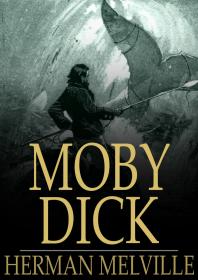 Moby Dick
by
Herman Melville
The itinerant sailor Ishmael begins a voyage on the whaling ship Pequod whose captain, Ahab, wishes to exact revenge upon the whale Moby-Dick, who destroyed his last ship and took his leg. As they search for the savage white whale, Ishmael questions all aspects of life. The story is woven in complex, lyrical language and uses many theatrical forms, such as stage direction and soliloquy. It is considered the exemplar of American Romanticism, and one of the greatest American novels of all time.
Moby Dick
by
Herman Melville
The itinerant sailor Ishmael begins a voyage on the whaling ship Pequod whose captain, Ahab, wishes to exact revenge upon the whale Moby-Dick, who destroyed his last ship and took his leg. As they search for the savage white whale, Ishmael questions all aspects of life. The story is woven in complex, lyrical language and uses many theatrical forms, such as stage direction and soliloquy. It is considered the exemplar of American Romanticism, and one of the greatest American novels of all time.
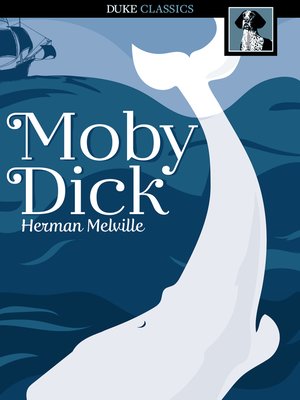 Moby Dick
by
Herman Melville
The itinerant sailor Ishmael begins a voyage on the whaling ship Pequod whose captain, Ahab, wishes to exact revenge upon the whale Moby-Dick, who destroyed his last ship and took his leg. As they search for the savage white whale, Ishmael questions all aspects of life. The story is woven in complex, lyrical language and uses many theatrical forms, such as stage direction and soliloquy. It is considered the exemplar of American Romanticism, and one of the greatest American novels of all time.
Moby Dick
by
Herman Melville
The itinerant sailor Ishmael begins a voyage on the whaling ship Pequod whose captain, Ahab, wishes to exact revenge upon the whale Moby-Dick, who destroyed his last ship and took his leg. As they search for the savage white whale, Ishmael questions all aspects of life. The story is woven in complex, lyrical language and uses many theatrical forms, such as stage direction and soliloquy. It is considered the exemplar of American Romanticism, and one of the greatest American novels of all time.
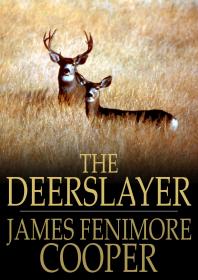 The Deerslayer
by
James Fenimore Cooper
he Deerslayer is the last book in Cooper's Leatherstocking Tales pentalogy, but acts as a prequel to the other novels. It begins with the rapid civilizing of New York, in which surrounds the following books take place. It introduces the hero of the Tales, Natty Bumppo, and his philosophy that every living thing should follow its own nature. He is contrasted to other, less conscientious, frontiersmen.
The Deerslayer
by
James Fenimore Cooper
he Deerslayer is the last book in Cooper's Leatherstocking Tales pentalogy, but acts as a prequel to the other novels. It begins with the rapid civilizing of New York, in which surrounds the following books take place. It introduces the hero of the Tales, Natty Bumppo, and his philosophy that every living thing should follow its own nature. He is contrasted to other, less conscientious, frontiersmen.
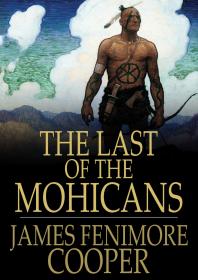 The Last of the Mohicans
by
James Fenimore Cooper
The Last of the Mohicans is the second book in Cooper's Leatherstocking Tales pentalogy, and remains his best-known work. It is a historical novel set in the French and Indian war in New York, and centers around the massacre of surrendered Anglo-American troops. The two daughters of the British commander are kidnapped, but rescued by the last two Mohicans. The title comes from a quote by Tamanend: "I have lived to see the last warrior of the wise race of the Mohicans".
The Last of the Mohicans
by
James Fenimore Cooper
The Last of the Mohicans is the second book in Cooper's Leatherstocking Tales pentalogy, and remains his best-known work. It is a historical novel set in the French and Indian war in New York, and centers around the massacre of surrendered Anglo-American troops. The two daughters of the British commander are kidnapped, but rescued by the last two Mohicans. The title comes from a quote by Tamanend: "I have lived to see the last warrior of the wise race of the Mohicans".
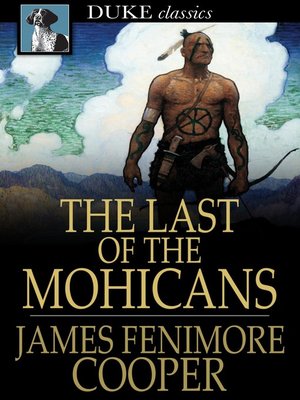 The Last of the Mohicans
by
James Fenimore Cooper
The Last of the Mohicans is the second book in Cooper's Leatherstocking Tales pentalogy, and remains his best-known work. It is a historical novel set in the French and Indian war in New York, and centers around the massacre of surrendered Anglo-American troops. The two daughters of the British commander are kidnapped, but rescued by the last two Mohicans. The title comes from a quote by Tamanend: "I have lived to see the last warrior of the wise race of the Mohicans".
The Last of the Mohicans
by
James Fenimore Cooper
The Last of the Mohicans is the second book in Cooper's Leatherstocking Tales pentalogy, and remains his best-known work. It is a historical novel set in the French and Indian war in New York, and centers around the massacre of surrendered Anglo-American troops. The two daughters of the British commander are kidnapped, but rescued by the last two Mohicans. The title comes from a quote by Tamanend: "I have lived to see the last warrior of the wise race of the Mohicans".
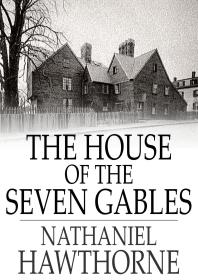 The House of the Seven Gables
by
Nathaniel Hawthorne
In an old, gloomy New England mansion, a woman opens a shop to support her brother, recently returned from prison. She takes on a border, and a distant relative--a beautiful, lively young woman--comes to live with them as well. The fragile bond between this group is shaken by the secret history of the house and their wealthy cousin who wants to take it from them.
The House of the Seven Gables
by
Nathaniel Hawthorne
In an old, gloomy New England mansion, a woman opens a shop to support her brother, recently returned from prison. She takes on a border, and a distant relative--a beautiful, lively young woman--comes to live with them as well. The fragile bond between this group is shaken by the secret history of the house and their wealthy cousin who wants to take it from them.
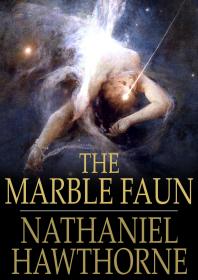 The Marble Faun
by
Nathaniel Hawthorne
Though Nathaniel Hawthorne is best remembered as the author of the quintessential American parable The Scarlet Letter, some of the New England writer's work was much less formal and traditional than that novel. In fact, some critics regard The Marble Faun, rife with impressionistic and fantastical elements, as downright experimental by comparison. It's a fascinating read that will please fans of Lovecraft and other uncanny horror.
The Marble Faun
by
Nathaniel Hawthorne
Though Nathaniel Hawthorne is best remembered as the author of the quintessential American parable The Scarlet Letter, some of the New England writer's work was much less formal and traditional than that novel. In fact, some critics regard The Marble Faun, rife with impressionistic and fantastical elements, as downright experimental by comparison. It's a fascinating read that will please fans of Lovecraft and other uncanny horror.
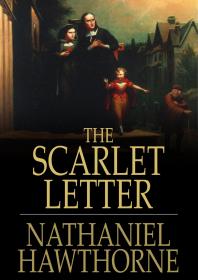 The Scarlet Letter
by
Nathaniel Hawthorne
n the puritanical Boston of the 17th Century, a woman gives birth after committing adultery. That woman, Hester Prynne, choses to create a new life for herself in the face of adversity rather than succumb to what is expected of her. She will not name the father. Her decision opens up the tension between religious life and the true grace of God, and between personal guilt, religious sin and legal guilt.
The novel is prefaced by a "real" account of the author finding notes on a case similar to Hestor's in a Custom House, from which he fashioned the story. The preface is to be read as fictional.
The Scarlet Letter
by
Nathaniel Hawthorne
n the puritanical Boston of the 17th Century, a woman gives birth after committing adultery. That woman, Hester Prynne, choses to create a new life for herself in the face of adversity rather than succumb to what is expected of her. She will not name the father. Her decision opens up the tension between religious life and the true grace of God, and between personal guilt, religious sin and legal guilt.
The novel is prefaced by a "real" account of the author finding notes on a case similar to Hestor's in a Custom House, from which he fashioned the story. The preface is to be read as fictional.
 The Scarlet Letter
by
Nathaniel Hawthorne
The Scarlet Letter was originally published in 1850 and was a bestseller at the time. This powerful American story of secret love and sin, of spiritual hypocrisy and moral courage, and of female bravery during a time when women were rarely respected, resonated with readers then and continues to do so now.
Set in the staunchly Puritan world of 1600s Boston Hester Prynne has committed adultery and given birth to an illegitimate daughter, Pearl, while her elder husband is away. Refusing to reveal Pearl's father Hester is punished and scorned by the community and forced to wear a red letter "A".
The Scarlet Letter
by
Nathaniel Hawthorne
The Scarlet Letter was originally published in 1850 and was a bestseller at the time. This powerful American story of secret love and sin, of spiritual hypocrisy and moral courage, and of female bravery during a time when women were rarely respected, resonated with readers then and continues to do so now.
Set in the staunchly Puritan world of 1600s Boston Hester Prynne has committed adultery and given birth to an illegitimate daughter, Pearl, while her elder husband is away. Refusing to reveal Pearl's father Hester is punished and scorned by the community and forced to wear a red letter "A".
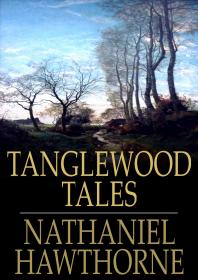 Tanglewood Tales
by
Nathaniel Hawthorne
The famed author of quintessentially American works such as The Scarlet Letter and The House of the Seven Gables, Nathaniel Hawthorne also wrote a series of books designed for younger readers. Tanglewood Tales is a collection of Greek myths charmingly retold for young American audiences.
Tanglewood Tales
by
Nathaniel Hawthorne
The famed author of quintessentially American works such as The Scarlet Letter and The House of the Seven Gables, Nathaniel Hawthorne also wrote a series of books designed for younger readers. Tanglewood Tales is a collection of Greek myths charmingly retold for young American audiences.
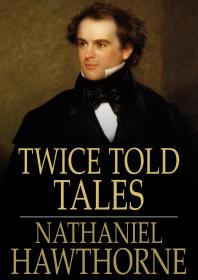 Twice Told Tales
by
Nathaniel Hawthorne
The author of such short-fiction masterpieces as "Young Goodman Brown" and "The Minister's Black Veil," Nathaniel Hawthorne is regarded as one of the most significant American writers of the nineteenth century. This volume collects many of his most famous short works and is a fitting compendium of his literary achievements for newcomers or longtime Hawthorne fans alike.
Twice Told Tales
by
Nathaniel Hawthorne
The author of such short-fiction masterpieces as "Young Goodman Brown" and "The Minister's Black Veil," Nathaniel Hawthorne is regarded as one of the most significant American writers of the nineteenth century. This volume collects many of his most famous short works and is a fitting compendium of his literary achievements for newcomers or longtime Hawthorne fans alike.
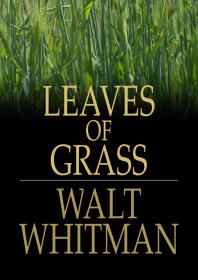 Leaves of Grass
by
Walt Whitman
Leaves of Grass is a collection of poems by Walt Whitman originally published in 1855 at the poet's own expense. Criticized when first released for Whitman's use of free verse and his rather racy depictions of sexual love and the senses, Leaves of Grass is a celebration of the human form, the material world and nature.
Leaves of Grass
by
Walt Whitman
Leaves of Grass is a collection of poems by Walt Whitman originally published in 1855 at the poet's own expense. Criticized when first released for Whitman's use of free verse and his rather racy depictions of sexual love and the senses, Leaves of Grass is a celebration of the human form, the material world and nature.
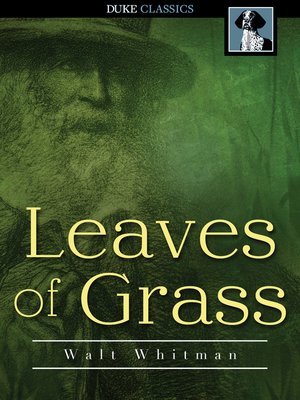 Leaves of Grass
by
Walt Whitman
Leaves of Grass is a collection of poems by Walt Whitman originally published in 1855 at the poet's own expense. Criticized when first released for Whitman's use of free verse and his rather racy depictions of sexual love and the senses, Leaves of Grass is a celebration of the human form, the material world and nature.
Leaves of Grass
by
Walt Whitman
Leaves of Grass is a collection of poems by Walt Whitman originally published in 1855 at the poet's own expense. Criticized when first released for Whitman's use of free verse and his rather racy depictions of sexual love and the senses, Leaves of Grass is a celebration of the human form, the material world and nature.
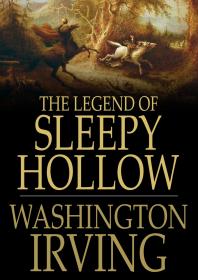 The Legend of Sleepy Hollow
by
Washington Irving
In a secluded Dutch settlement in New York, two men vie for the hand of a wealthy farmer's daughter. Ichabod Crane, the superstitious schoolmaster is one of those men. One night, when walking home from the farmer's house, Ichabod is chased by the Headless Horseman, who "rides forth to the scene of battle in nightly quest of his head".
Irving's short story The Legend of Sleepy Hollow is one of the earliest examples of American literature still read today.
The Legend of Sleepy Hollow
by
Washington Irving
In a secluded Dutch settlement in New York, two men vie for the hand of a wealthy farmer's daughter. Ichabod Crane, the superstitious schoolmaster is one of those men. One night, when walking home from the farmer's house, Ichabod is chased by the Headless Horseman, who "rides forth to the scene of battle in nightly quest of his head".
Irving's short story The Legend of Sleepy Hollow is one of the earliest examples of American literature still read today.
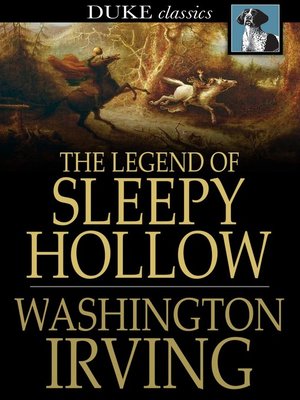 The Legend of Sleepy Hollow
by
Washington Irving
In a secluded Dutch settlement in New York, two men vie for the hand of a wealthy farmer's daughter. Ichabod Crane, the superstitious schoolmaster is one of those men. One night, when walking home from the farmer's house, Ichabod is chased by the Headless Horseman, who "rides forth to the scene of battle in nightly quest of his head".
Irving's short story The Legend of Sleepy Hollow is one of the earliest examples of American literature still read today.
The Legend of Sleepy Hollow
by
Washington Irving
In a secluded Dutch settlement in New York, two men vie for the hand of a wealthy farmer's daughter. Ichabod Crane, the superstitious schoolmaster is one of those men. One night, when walking home from the farmer's house, Ichabod is chased by the Headless Horseman, who "rides forth to the scene of battle in nightly quest of his head".
Irving's short story The Legend of Sleepy Hollow is one of the earliest examples of American literature still read today.
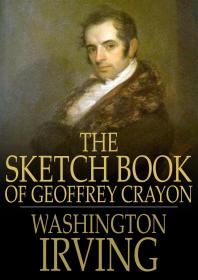 The Sketch Book of Geoffrey Crayon
by
Washington Irving
The Sketch Book of Geoffrey Crayon is the compilation of 34 short stories and essays by Washington Irving. It includes some of his most famous stories, such as The Legend of Sleepy Hollow and Rip Van Winkle, and was one of the first works of American fiction to become popular in Britain and Europe. The tone of the stories varies widely, and they are held together by the powerful charm of their narrator, Geoffrey Crayon.
The Sketch Book of Geoffrey Crayon
by
Washington Irving
The Sketch Book of Geoffrey Crayon is the compilation of 34 short stories and essays by Washington Irving. It includes some of his most famous stories, such as The Legend of Sleepy Hollow and Rip Van Winkle, and was one of the first works of American fiction to become popular in Britain and Europe. The tone of the stories varies widely, and they are held together by the powerful charm of their narrator, Geoffrey Crayon.
![]()
Go to OneSearch to search for more print books.
Want more on finding print books? Try our How to Use OneSearch guide.
© 2024 COM Library
1200 Amburn Road, Texas City, Texas 77591
409-933-8448 . FAX 409-933-8030
This work is licensed under a Creative Commons Attribution-NonCommercial 4.0 International License